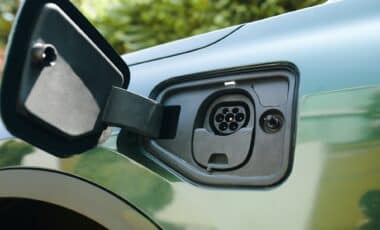The Australian government is reportedly considering a nationwide road user charge for electric vehicles (EVs) to offset diminishing fuel excise revenue. Federal Treasurer Dr Jim Chalmers has raised the prospect of introducing a charge based on kilometres travelled, a move that could replace state-level schemes ruled unconstitutional.
This potential shift comes as EV adoption continues to rise, with the Commonwealth Scientific and Industrial Research Organisation (CSIRO) projecting that 97% of light passenger vehicles on Australian roads will be electric by 2050. With fewer vehicles consuming petrol, the fuel excise—currently set at 50.6 cents per litre—continues to decline, prompting calls for an alternative system to fund road infrastructure.
Federal government considers national approach to road funding
The proposal for a federal EV road user charge follows the High Court of Australia’s decision to invalidate Victoria’s state-based scheme, which was deemed an excise and therefore unconstitutional. According to the Australian Financial Review, Dr Chalmers recently discussed the issue at a Business Council of Australia event, highlighting the need for a sustainable revenue model for road maintenance.
Previously, Victoria had imposed a 2.8-cent per kilometre charge on EVs and 2.3 cents per kilometre on plug-in hybrid vehicles (PHEVs). This scheme generated $3.9 million in the 2022/23 financial year, with a total of nearly $10 million collected since its introduction in 2021. However, with state-based initiatives now legally challenged, industry groups are pushing for a coherent national framework.
The Australian Automotive Dealer Association (AADA) has urged the government to create an “equitable national road user charging system” that does not discourage EV adoption. In its pre-budget submission, the organisation emphasised the need for a technology-neutral approach, ensuring that all vehicle types contribute fairly to road maintenance without undermining climate targets.
Calls for fair and effective taxation of road use
The Australian Electric Vehicle Association (AEVA) has also weighed in, advocating for a mass-based road user charge that applies to all vehicles, regardless of fuel type. According to AEVA National President Dr Chris Jones, heavier vehicles—both electric and conventional—cause greater road wear and should be taxed accordingly.
“A universal, mass x distance road user charge should eventually replace fuel excise as the user-pays component of roads and their maintenance,” Dr Jones stated, adding that heavy vehicles, including trucks, should not be exempt as they account for significant road damage.
The New South Wales and Western Australian governments had previously planned to introduce their own EV road user charges by 2027, while South Australia reversed course following a change in leadership. The federal government’s consideration of a national charge could provide uniformity across states, ensuring a consistent approach to road funding.









